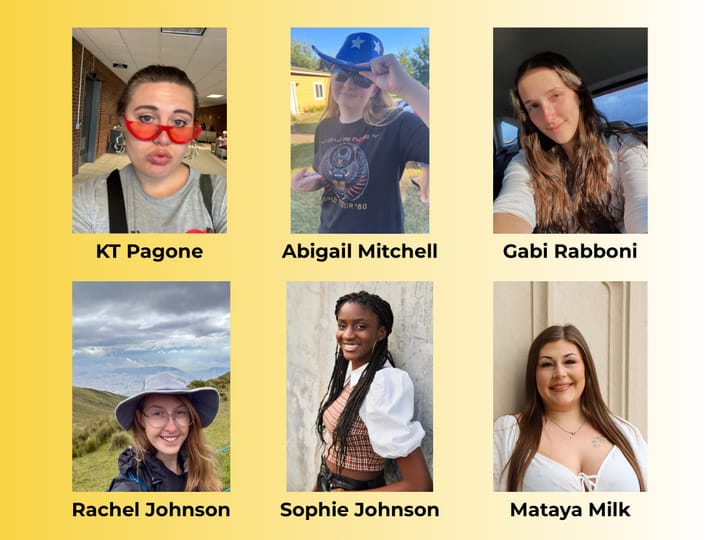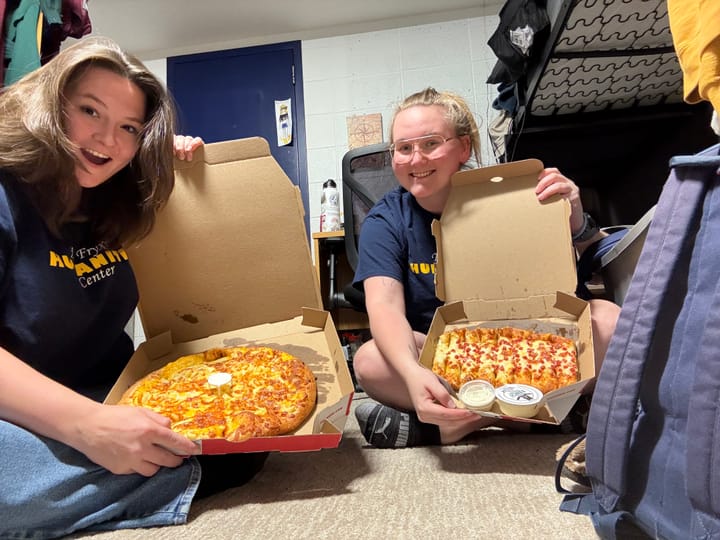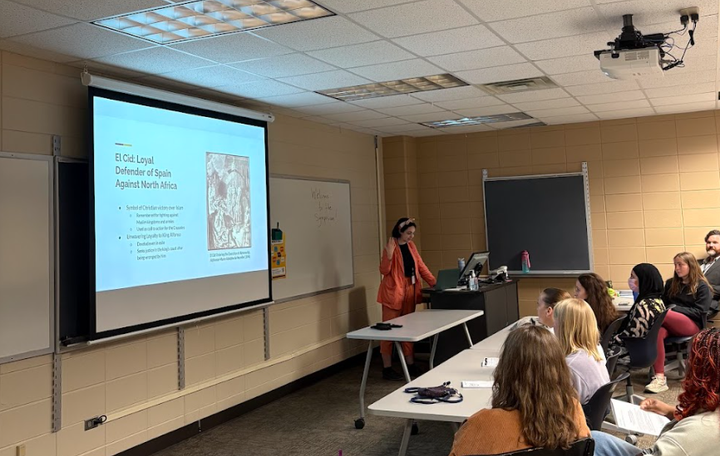Maintaining the music: How Augustana’s music programs are adapting to the challenge of COVID-19
Augustana University’s School of Music has overcome new obstacles in order to preserve the art of music on campus.
According to the World Health Organization, COVID-19 spreads through respiratory droplets and, in specific circumstances, it can be airborne. Musicians produce more aerosol release than most others.
Singers project more breath than normal talking, and instruments transmit aerosol in a less containable manner.
This problem had not been previously researched.
“We spent so much time this summer just trying to get our heads around a pretty significant problem,” Christopher Unger, Augustana’s director of bands said. “It was a new animal for sure.”
According to Peter Folliard, the Dean of the School of Music at Augustana, the university’s staff spent the summer proposing solutions using results from a study funded by the College Band Directors National Association. The study took place at the University of Colorado at Boulder, used light technology that illuminated aerosol and focused on how to limit the aerosol expulsion from instruments and vocalists.
“We didn’t try to come up with our own solution,” Unger said. “We tried to listen to the best science available then come up with our own strategic safety plan based on the best science available.”
The research teams found most of the air is discharged through the nose. Custom mask designers worked with Augustana to create masks specific for vocalists with tighter edges and more space over the mouth.
They also designed face masks with velcro openings for mouthpieces and canvas bags with inserts for hands to be used by wind instrumentalists. Brass instruments expel mostly from their bell, which is being combatted with fitted bell coverings. These modifications leave little ventilation while having minimal effects on sound.
To combat what little air does escape, the choir, band and orchestra allow a 20 minute air cycle to pass through a room every 30 minutes. With rehearsals lasting 90 minutes, this requires three rooms to be booked per rehearsal with the band meeting three times weekly. Additionally, students have to maintain a six-foot space at all times with trombonists maintaining a nine-foot gap.
“Our department has kicked butt in implementing rigorous procedures to keep students safe,” Folliard said. “We’re doing everything short of wearing tinfoil hats to keep us safe.”
The time and space restraints prompt a challenge finding enough space for the university’s three choirs, two bands and orchestra to rehearse multiple times weekly in large enough spaces.
“I wanted to be able to spread out even more than six feet because I think that’s even safer,” Unger said. This was achieved by breaking the ensembles into smaller groups.
Sophomore elementary and special education major, Kayden Hoeke is a member of the Augustana Choir tenors. He described the choir as similar to last year with the only major changes being wearing masks, meeting in new rooms and breaking into smaller groups.
“I feel like the choir is least affected as we are able to have pretty much normal rehearsals,” Hoeke said.
The pandemic has dismantled the department’s ability to perform for live audiences. Staff have developed an innovative solution by organizing Vespers to be a recorded performance for Christmas Eve to be played on South Dakota Public Broadcasting.
The recording process will also expose students to a studio environment. The bands, choirs and orchestra will record their parts individually using pre-recorded tracks. After all the recordings are done, Folliard will combine them for the final holiday performance sound.
“As soon as people have started to make music, there’s been this release,” Folliard said. “In a time when we’re all working harder than ever to make all of this work, to be able to have an escape that is also a team community is a good thing.”



